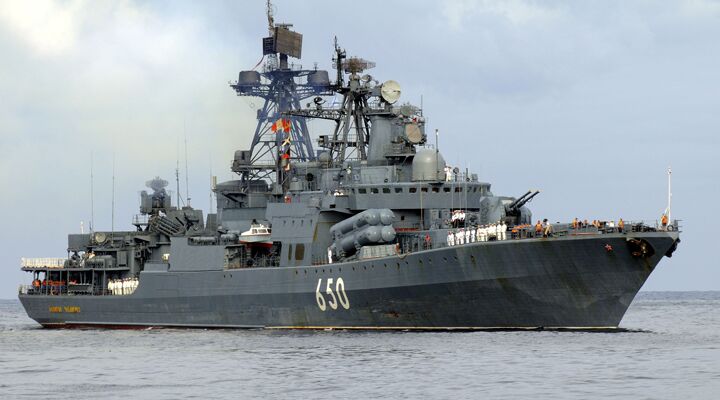
Deal or No Deal?—Russia Suspends Naval Base in Syria
Russia has suspended the use of its only warm-water naval base in Tartus, on the Syrian coast. Moscow has maintained that it will continue to support Syrian President Bashar Assad on a political level, but the naval withdrawal has sent a clear message that Russia will not go so far as to support the regime with military force.
“Our naval base in Tartus will not support a military option. We cannot physically act militarily against countries supporting the Syrian opposition,” a Russian Defense Ministry source told the Russian daily Nezavisimaya Gazeta.
The message comes at a bad time for President Assad’s Alawite regime, when the West has begun to actively support the opposition.
Russia has gone to lengths to shore up its relationships with Syria and Iran over the last few years, but with the recent suspension of the Tartus naval base, Russia may be making a clear change in foreign policy. Earlier this month in an interview with Courcy’s Intelligence Report, former Russian Foreign Minister Yevgeniy Primakov confirmed that Russia would continue to support Syria and President Assad. But he also indicated that such support might have its limits, calling the current stance “not necessarily a winning position.” Assad’s situation has since deteriorated further.
It appears that a deal over the future of Syria is in the process of being cut between Russia and the West.
German-Foreign-Policy.com released a report on Wednesday stating that Germany has constructed a plan of action concerning the situation in Syria. The plan includes a concept for a new ruling order to replace Assad.
Germany’s intervention in the Syrian situation is interesting. It clashes with its overt hands-off approach toward other Arab Spring uprisings in Libya and Egypt. Why the sudden change?
In his Trumpet column on April 19, Brad Macdonald stated, “One of Germany’s primary aims in the Middle East is to develop an axis with Middle Eastern states that opposes Iran.” That is the reason for Germany building its relationships with nations like Turkey and Saudi Arabia. Syria is perhaps Iran’s greatest ally, but the Syrian civil war has a chance to change that. Along with other Western nations, Germany is stepping up its influence over Syria to gain another fulcrum against Iran. This is why Germany has made a stronger move in Syria—and why Russia appears to be reacting.
The Bible predicts that Syria will eventually leave its alliance with Iran—and form a confederacy with other anti-Iranian nations, including Germany. This forecast was made thousands of years ago in an extraordinary prophecy found in Psalm 83.
For the time being, Russia seems content to step back—but don’t let that fool you. Read editor in chief Gerald Flurry’s article “Russia’s Attack Signals Dangerous New Era,” which reveals why Russia may be abandoning Syria.
